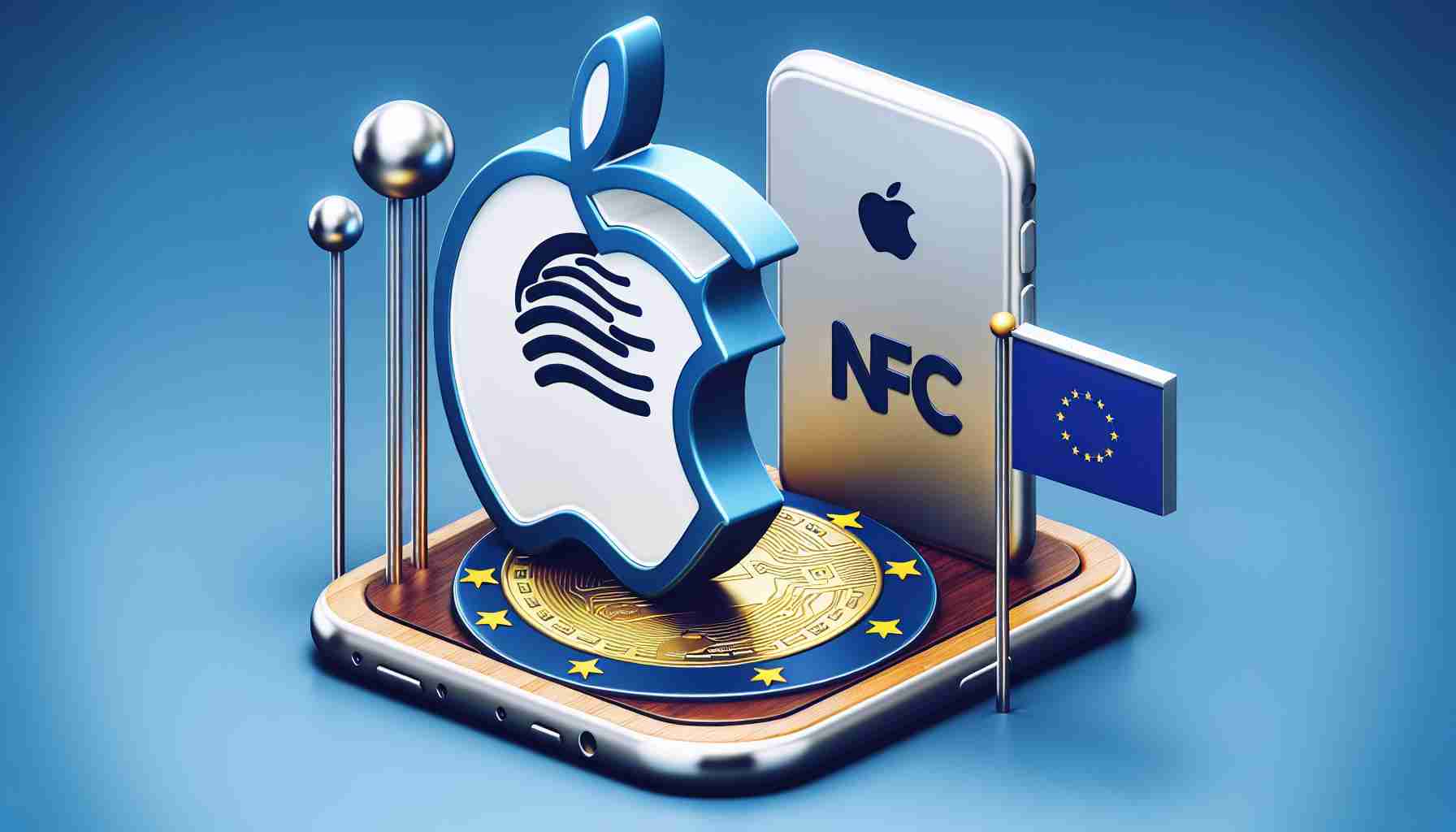Apple Inc. is nearing an agreement with European Union (EU) antitrust regulators, potentially concluding a prolonged investigation looming over the tech behemoth. Sources intimate with the discussions indicate anticipation of the EU’s approval as soon as the upcoming month, following Apple’s concessions regarding the Near Field Communication (NFC) technology on its devices.
Strategic Concessions to Avoid Sanctions
In an effort to offset allegations of anti-competitive behavior and to avoid a substantial financial penalty – which could amount to a considerable slice of its global revenue – Apple extended an olive branch earlier this year. The company expressed willingness to allow rival companies access to the NFC chip on iPhones, iPads, and other mobile gadgets. This access, remarkably, would be granted without cost and would no longer require the use of Apple’s proprietary services.
Refined Terms Meeting Market Demands
Following input from competitors and customers, Apple revised some of its previously proposed terms. The company’s offer includes supplemental features to enrich user experience with alternative payment options. This involves enabling the setting of preferred payment applications as the default option, leveraging secure authentication through FaceID, and implementing a method to resolve potential disputes.
A Decade of Open NFC Use
Looking ahead, Apple’s provision for the use of its NFC is proposed to span ten years, demonstrating a substantial commitment to broadening the competitive landscape. As the details are being meticulously ironed out by Apple, the acceptance of this arrangement by the EU authorities is anticipated to occur swiftly, with May being the most probable time frame. The proposal represents a pivotal shift for the market, underscoring the EU’s drive towards enhancing competition and consumer choice in the digital payment space.
The context behind Apple’s anticipated agreement with the European Union is deeply rooted in the broader issues of market competition and regulatory pressures faced by major tech companies across the globe. Here are additional facts, key questions with answers, challenges, and controversies, as well as advantages and disadvantages related to this topic.
Broader Regulatory Pressure
Apart from the NFC issue, Apple has been under scrutiny for various other business practices deemed anti-competitive by regulators in different jurisdictions, including app store policies and repair practices. The company’s agreement on NFC access is seen within a context of increased regulatory pressure to open up its ecosystem.
Key Questions and Answers
Q: What is NFC technology?
A: NFC, or Near Field Communication, allows for wireless communication between devices over short distances, commonly used in contactless payment systems.
Q: Why has the EU targeted Apple’s NFC access?
A: The EU believes that restricting NFC access to Apple Pay provides Apple with an unfair competitive advantage in the mobile payments market.
Challenges and Controversies
One of the key controversies revolves around the potential implications for security and privacy when allowing third-party access to NFC technology. As Apple has touted its devices’ security as a selling point, there may be concerns about maintaining these standards with increased openness.
Advantages and Disadvantages
Advantages:
– It may increase competition in the mobile payments space, leading to innovation and better services for consumers.
– Competitors will have a fairer chance to enter and thrive in the contactless payment market.
– Consumers could benefit from a wider array of payment options and potentially lower costs.
Disadvantages:
– Potential security risks considering third-party access to sensitive hardware and software.
– It might dilute Apple’s brand exclusivity and control over the user experience.
– Apple could incur costs associated with ensuring third-party services integrate seamlessly and securely.
The debate over NFC access touches upon the wider narrative of balancing competition with innovation, security, and user experience. As the EU works to create a more level playing field, it also has to consider the implications of such decisions on the industry’s future.
For more information on relevant policies and wider tech industry news, you might visit the European Commission’s official website at European Commission or Apple’s official newsroom at Apple to stay updated on developments. Please ensure you’re visiting these URLs directly as changes in web structures can occur.
The source of the article is from the blog aovotice.cz
